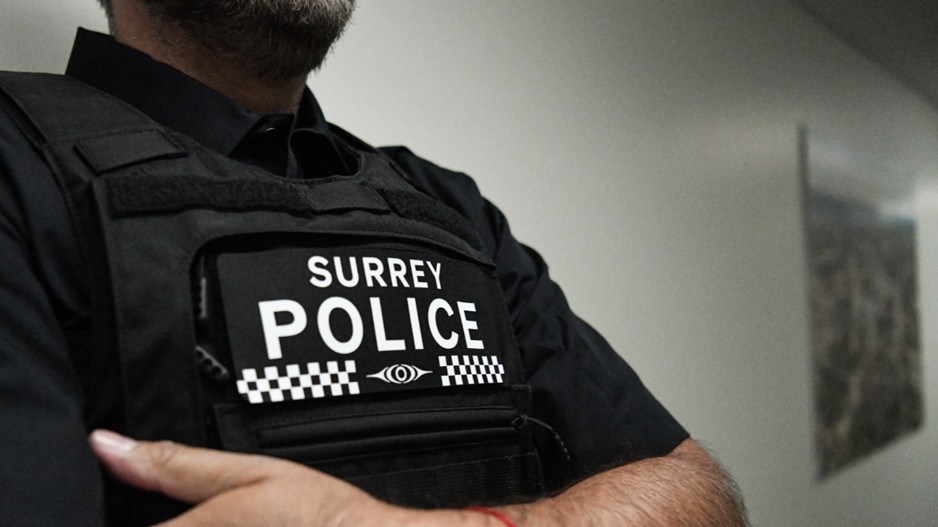The Mounties are known for “always getting their man,” but they might not always get their way — a situation that’s unfolding in Surrey, B.C., where the province wants the RCMP to hand over its responsibilities to the newly formed .
This hotly contested and move by the B.C. government — — has made its way to the province’s Supreme Court. The case will likely have implications on how the Canadian Constitution applies to .
It will also raise questions of national and practical importance: Should the RCMP be involved in municipal contract policing? Or is that role better left to the municipalities under provincial policing models? These questions illustrate an ongoing struggle between modern police reform and the old guard.
National scope
The question of whether the federal RCMP should be involved in municipal policing is being as they weigh their options for policing in contemporary times.
. B.C. has investigated the issue via an all-party special committee, to a provincial and municipal policing model. .
Surrey is the largest city by land mass in the Metro Â鶹´«Ã½Ó³»area, and projected to be the largest city in B.C by population by 2029, so the case is an interesting barometer of where Canadian policing could be headed.
, the Mounties and the province must get it right in Surrey to ensure the fragile nature of public trust in those who serve and the agencies they work for is maintained.
This is especially important in light of an array of RCMP controversies , allegations of a , the poor handling of and .
Federal vs. provincial jurisdiction
, without the same status as provinces. Provincial governments, on the other hand, receive their legislative authority from the Constitution.
Municipalities fall under provincial constitutional authority. This includes law enforcement services under provincial policing legislation across Canada.
While it’s true that the RCMP has provided provincial and municipal police services under “” since the early 1900s, the Mounties weren’t initially structured as a local force of jurisdiction. The RCMP was a frontier force of the Dominion of Canada more aptly framed as a cavalry rather than a constabulary.
In contemporary times, and with the that disproportionately affects marginalized Canadians, there is a strong case for transitioning away from a federal force being involved in provincial policing, even if it’s more expensive over time — as Alberta and Surrey is .
RCMP no longer the cheapest option
In Canada, municipal policing is paid for from property taxes. Policing, in fact, makes up a significant portion of municipal budgets in many communities.
Traditionally, the RCMP used to provide contract policing service at because Mounties weren’t unionized and paid lower than municipal forces.
But the cheaper option is unlikely to exist much longer since the Supreme Court of Canada could engage in collective bargaining and unionize, .
The practical result of RCMP unionization is due to wage increases and other collective bargaining issues that are falling to individual municipalities, stretching already tight budgets.
The RCMP is now largely a unionized federal force — not a provincial or municipal one — and there is no obligation for the Mounties to continue beyond initial contractual provisions that are set to . The federal government is, however, now eyeing .
Citizens need effective policing
Caught up in this ongoing debate on the future of policing in Canada are citizens who require crime prevention, emergency response and general police services.
Police service delivery is becoming fragmented as social tensions rise across the country, including amid ongoing that continue to between the public and the constables who serve them.
The current between competing law enforcement agencies in Surrey, , does little to strengthen public trust in the rule of law and our police forces.
Rather, it widens the existing divide between individual police officers and the communities they serve — a growing chasm that is increasingly more difficult to bridge and repair.
Period of reform ahead
the RCMP will continue large-scale provincial and in perpetuity in Canada.
The next iteration of is on the . During this reform period, it’s critical to ensure a smooth transition of police power between and services of new.
Grand Prairie, Alta., has shown how it can be done after a from the RCMP to its own municipal force that . The transition featured public transparency, timely and effective collaboration among police forces, early planning and a focus on ensuring there were no police service gaps during the switch.
In Surrey, the temperature must be turned down among competing police unions and the elected officials responsible for the transition of power. The Surrey situation is setting a bad example for the rest of Canada.
It’s critical to take stock of our collective societal failures that continue to and by extension seriously undermines the overall rule of law in our democracy.
Bryce J. Casavant receives funding from the Social Sciences and Humanities Research Council of Canada and held fellowship between 2016 and 2020.



